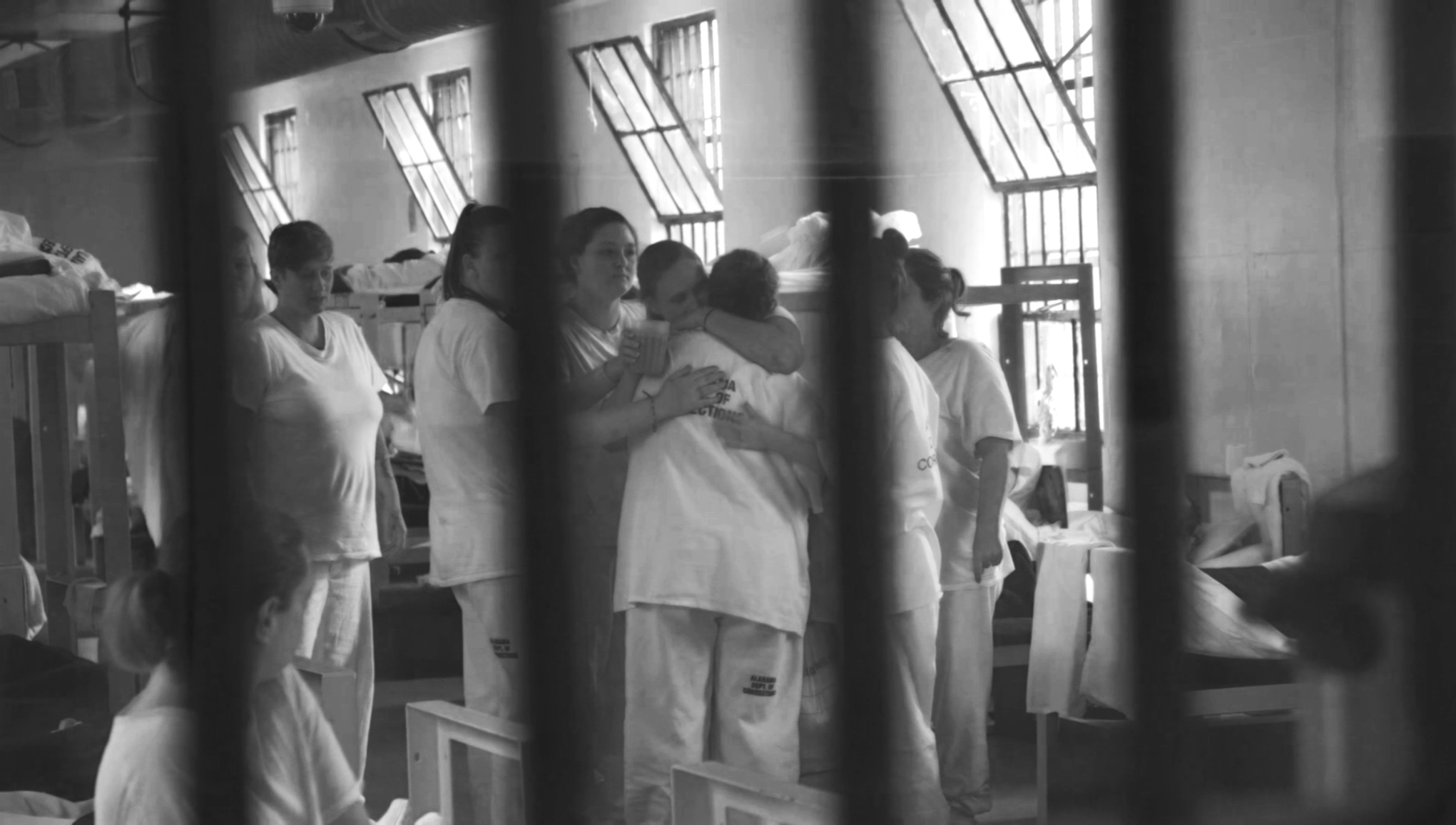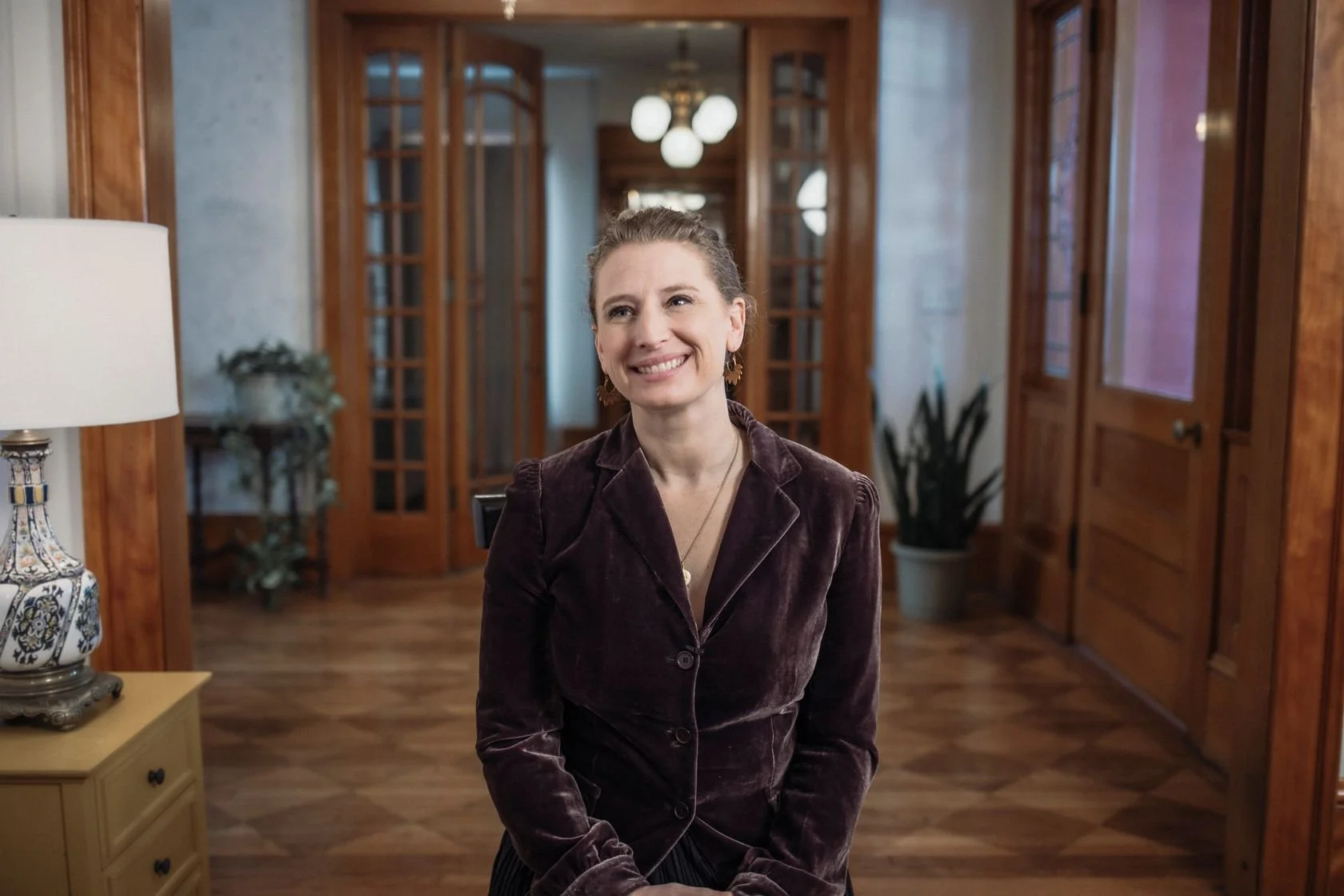We Can End The Harm Of Prison Birth
A Way Forward
To provide transformative solutions, we must first understand the problem, up close, in detail.
We know many community members have not considered what it means when someone enters prison pregnant. If a pregnant person is not released from custody before they give birth, they most often enter postpartum separated from their newborn. This prison birth experience creates a maternal and child health crisis that needs transformative solutions to address.
Even if you cannot enter a jail or prison as we do, you can use our resources to better understand the harm that prison birth creates. Begin with this 34-minute documentary, Tutwiler, that walks you through the story of a pregnant mom in prison in Alabama’s women’s prison. As you watch, ask yourself, “What if it was me?”
We search for solutions in the soil, seed, and roots of our communities, government, and institutions. Our work challenges the destructive tendencies of for-profit prisons and closes the chasm between the carceral state and community-based support.
❊ Explore The Vision
Vision For New Solutions
The free video series below is our shared, collaborative vision for innovation and authentic leadership at the intersection of health and justice for pregnant and parenting people. Watch below for what transformative solutions can look like with renewed vision for change. This project was created with the generous support of the W.K. Kellogg Foundation and the Constellation Fund.
We Can Do Better
Erica Gerrity, LICSW, MSW
Executive Director
Ostara Initiative
Building Connection Through Milk
Chauntel Norris, CLC, LCCE
Manager of Advocacy, Forward Vision & Change, Program Director of the Alabama Prison Birth Project
Ostara Initiative
Twice Removed From My Namesake
Tommy Franklin
Writer, Artist, Filmmaker
Ostara Board Member
Prison Doulas Improve Outcomes
Raelene Baker
Certified Doula & Director
Federal Prison Doula Program
Ostara Initiative
Who Counts?
Rebecca Shlafer, PhD, MPH
Associate Professor
Division of General Pediatrics and Adolescent Health
Department of Pediatrics
University of Minnesota
What I Lost And How This Helps
Josh Christofferson
Firefighter & EMT
Ostara Board Member
❊ Inspired?
Choose Your Next Step
Join us in advancing dignity-centered care for pregnant and parenting people in prison. Your partnership helps sustain programs, advocacy, and education that create lasting change for families.
❊ Partner
Deepen your understanding of pregnancy and birth in prison. Explore data, stories, and studies that illuminate the realities of incarceration and the possibilities for reform.
❊ Research
We welcome collaboration and conversation. Reach out to discuss strategic partnerships, speaking opportunities, or other ways to engage with our work.
❊ Connect
❊ Research
Self-Study
Resources
-
Full Text PDFs available from Dr. Rebecca Shlafer upon request.
Shlafer, R. J., Gerrity, E., Norris, C., Freeman-Cook, R., & B Sufrin, C. (2022). Justice for Incarcerated Moms Act of 2021: Reflections and recommendations. Women's Health, 18, 17455057221093037.
Howland, M. A., Kotlar, B., Davis, L., & Shlafer, R. J. (2021). Depressive symptoms among pregnant and postpartum women in prison. Journal of Midwifery & Women's Health, 66(4), 494-502.
Pendleton, V. E., Schmitgen, E. M., Davis, L., & Shlafer, R. J. (2021). Caregiving Arrangements and Caregiver Well-being when Infants are Born to Mothers in Prison. Journal of Child and Family Studies, 1-14.
Shlafer, R., Davis, L., Hindt, L., & Pendleton, V. (2021). The benefits of doula support for women who are pregnant in prison and their newborns. In Children with Incarcerated Mothers (pp. 33-48). Springer, Cham.
Shlafer, R., Saunders, J.B., Boraas, C. M., Kozhimannil, K. B., Mazumder, N., & Freese, R. Maternal and neonatal outcomes among incarcerated women who gave birth in custody. Birth. 2021; 48, 122–131. https://doi.org/10.1111/birt.12524
Pendleton, V., Saunders, J. B., & Shlafer, R. (2020). Corrections officers’ knowledge and perspectives of maternal and child health policies and programs for pregnant women in prison. Health & Justice, 8(1), 1.
Shlafer, R., Hardman, R., Carlson, E. (2019). Reproductive justice for incarcerated mothers and advocacy for their infants and young children. Infant Mental Health, 40(5), 725-74.
Shlafer, R., Davis, L., Hindt, L., Goshin, L., & Gerrity, E. (2018). Intention and Initiation of Breastfeeding Among Women Who Are Incarcerated. Nursing for Women’s Health, 22(1), 64-78.
Shlafer, R., Stang, J., Dallaire, D., Forestell, C. A., & Hellerstedt, W. (2017). Best Practices for Nutrition Care of Pregnant Women in Prison. Journal of Correctional Health Care, 23(3), 297-304.
Shlafer, R., Gerrity, E. & Duwe, G. (2015). Pregnancy and Parenting Support for Incarcerated Women: Lessons Learned. Progress in Community Health Partnerships: Research Education and Action, 9(3), 371-378.
Shlafer, R., Hellerstedt, W., Secor-Turner, M., Gerrity, E., & Baker, R. (2014). Doulas’ perspectives about providing support to incarcerated women: A feasibility study. Public Health Nursing, 32(4), 316–326. -
-
-
-
Reproductive Health Care and Family Planning Needs Among Incarcerated Women
Imprisonment and Women’s Health: Concerns About Gender Sensitivity, Human Rights and Public Health
Where Does Your State Stand on Shackling Pregnant Incarcerated Women?
A Radical Model for Decriminalization: Young Women’s Freedom Movement
State Standards for Pregnancy-Related Health Care and Abortion for Women In Prison
Health Outcomes of Incarcerated Pregnant Women and Their Infants in a Community-Based Program
-










